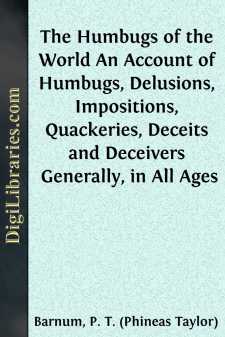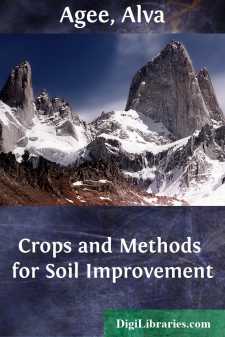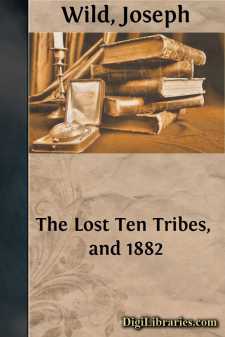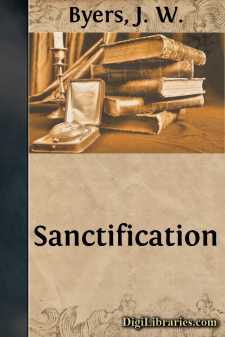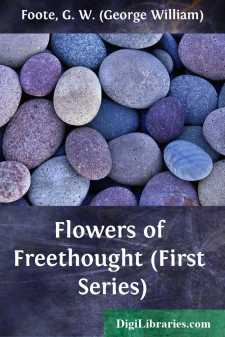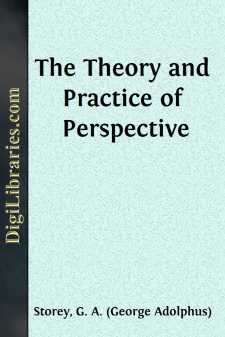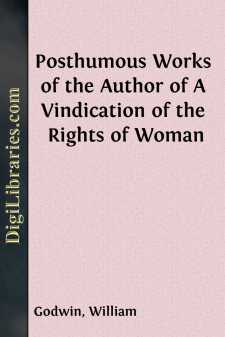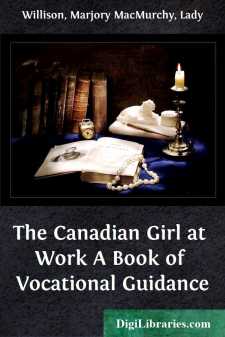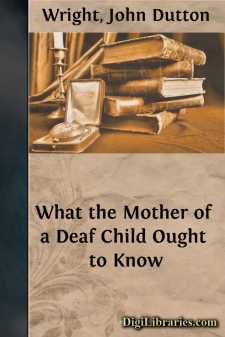Non-Classifiable
- Non-Classifiable 1768
Non-Classifiable Books
Sort by:
One of Mr. Barnum’s secrets of success is his unique methods of advertising, and we can readily understand how he can bear to be denounced as a “Humbug,” because this popular designation though undeserved in the popular acceptation of it, “brought grist to his mill.” He has constantly kept himself before the public—nay, we may say that he has been kept before the public constantly, by the...
more...
by:
Alva Agee
INTRODUCTION —This book is not a technical treatise and is designed only to point out the plain, every-day facts in the natural scheme of making and keeping soils productive. It is concerned with the crops, methods, and fertilizers that favor the soil. The viewpoint, all the time, is that of the practical man who wants cash compensation for the intelligent care he gives to his land. The farming that...
more...
by:
Joseph Wild
PREFACE. The following Discourses are presented to the public in book form, agreeable to the request of numerous friends. I have selected twenty from one hundred and thirty which I have given to my own congregation during the past three years. I have tried to have them lean one against another, to the end that the argument might be continuous and somewhat complete. The reader will remember,...
more...
by:
J. W. Byers
What is Sanctification? Scripturally, the word sanctification has three meanings: First, separation; second, dedication; third, spirit-filling. Webster's definition of it is as follows: "1. Sanctification is the act of God's grace by which the affections of man are purified, or alienated from sin and the world, and exalted to a supreme love of God; also, the state of being thus purified...
more...
PREFACE. Heinrich Heine called himself a soldier in the army of human liberation. It was a modest description of himself, for he was more; his position was that of a leader, and his sword was like the mystic Excalibur, flashing with the hues of his genius, and dealing death to the enemies of freedom. Humbler fighters than Heine may count themselves as simple soldiers in that great army, whose...
more...
THE NECESSITY OF THE STUDY OF PERSPECTIVE TO PAINTERS, SCULPTORS, AND ARCHITECTS Leonardo da Vinci tells us in his celebrated Treatise on Painting that the young artist should first of all learn perspective, that is to say, he should first of all learn that he has to depict on a flat surface objects which are in relief or distant one from the other; for this is the simple art of painting. Objects...
more...
by:
William Godwin
PREFACE. The public are here presented with the last literary attempt of an author, whose fame has been uncommonly extensive, and whose talents have probably been most admired, by the persons by whom talents are estimated with the greatest accuracy and discrimination. There are few, to whom her writings could in any case have given pleasure, that would have wished that this fragment should have been...
more...
PREFACE The object of The Canadian Girl at Work is to assist girls in finding satisfactory employment. The further aim of showing them what constitutes a right attitude toward work and toward life through work, underlies the account of each occupation. The book is meant for girls, and for the assistance of fathers and mothers, of teachers, and of those who are interested in questions of training and...
more...
PREFACESince1870-1, when J. E. Austen Leighpublished hisMemoir of Jane Austen, considerable additions have been made to the stock of information available for her biographers. Of these fresh sources of knowledge the set of letters from Jane to Cassandra, edited by Lord Brabourne, has been by far the most important. These letters are invaluable asmémoires pour servir;although they cover only the...
more...
I Facing the Facts While deafness is a serious misfortune, it is neither a sin, nor a disgrace, to be ashamed of. It is a handicap, to be sure, but one to be bravely and cheerfully faced, for it does not destroy the chances for happiness and success. It is cause for neither discouragement nor despair. It will demand patient devotion and courageous effort to overcome the disadvantage, but what mother is...
more...


